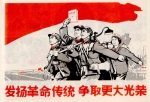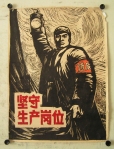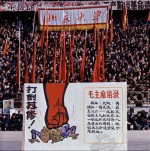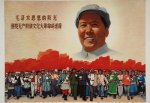This post is largely based on Dangerous Games: the Uses and Abuses of History by Margaret Macmillan.

The recent history of history
During the Cold War, history was not considered as interesting as it is now. The capitalist and communist systems were about building a new world, not looking back; and old rivalries, such as Croats vs. Serbs, were supposed to have been lost in the swirling mists of time.
The 1990s therefore surprised everyone by ushering in a more complicated, international order. The ethnic conflicts that had so characterised the pre Cold War world had not perished but simply frozen, just under the surface. But an equally inaccurate reading of history led some to think that the new fighting was based on age-old conflicts, rather than, to go back to the example of Yugoslavia, on Slobodan Milosevic and Franjo Tuđman’s ambitious opportunism in carving up Bosnia between themselves. A merely superficial understanding of history meant that whether to intervene to end the war in Yugoslavia was a question that cost thousands of lives to answer.
Bad history hides answers
There is a mass of bad history out there, sometimes recognisable by its sweeping generalisations. It is conventional wisdom that the Treaty of Versailles led directly to World War Two. However, this account overlooks the fact that treatment was not as severe as many Germans claimed at the time. Germany only paid a fraction of the bill, and Hitler cancelled it outright. The Weimar Republic government’s mismanagement of its economy was far more damaging. Germany also had bad leaders, who thought they could control Hitler once he got into power. Hitler’s ambition and fierce nationalism were much more influential on the outbreak of the second war.
The manipulation of history is increasingly pervasive in our world. Many governments have departments devoted to commemorating history or “heritage”. They vet history text books to ensure their compliance with the approved version of the story. They believe the past should be used as a tool to create patriotic citizens.We hear one-sided or false histories employed to justify anything in the present. Though history, like the present, is very complicated, painting very blurred lines between good and evil, the abuse of history reduces the complicated to a simple pattern of our good deeds and their criminality. History can thus be an escape to a simple, innocent world from a Norman Rockwell painting. (A romantic past is also good for tourism.)
The descendants of the allies of World War Two believe it was the last clearly, unambiguously good war–even though they were allied with one of the most murderous regimes in history. In North America, Churchill is remembered as the hero who soldiered on alone against Hitler, rather than the author of the disastrous Gallipoli campaign of World War One. And the romantic past can remind citizens who do not know history very well why they should support current leaders. George Bush compared himself to Churchill (the great commander, not the Gallipoli guy) and Truman (the unpopular one whom history has vindicated nonetheless); Stalin compared himself to Ivan the Terrible and Peter the Great, the iron-fisted rulers who made Russia strong; Saddam Hussein compared himself to Saladin, sultan of Egypt and Syria who fought crusaders; and Mao Zedong liked to draw parallels between himself and the Qin Emperor who united China after the Three Kingdoms Period. Analogies draw pretty pictures of ugly faces.
History and collectivism
Publishers and TV stations profit from idealised versions of history because they make us feel good about ourselves and our ancestors. Our approach to history strongly affects our collective self-image. Most people are collectivists: they feel they belong to a group that is bigger than they are, and that everyone else does too. They look to history books to provide not the truth but meaning. We tell and retell stories about ourselves and our groups, and since we do not want to feel bad about anything we associate ourselves with, our stories inevitably make us look good and feel proud.
That leads us to ask, what is history for? Is it to know the truth? To learn lessons for our lives? To create a community? To create patriots? To legitimise current government policy? Or to understand how we got here?
Why is truth important in history? Because only then can we understand the present, understand ourselves and most importantly, understand others. That means a) why our group is no more moral than any other group, b) why others are angry with us, c) what we should do to make things right. If we do not learn, or at least seek out, the truth in history, we will write off everyone else’s anger as irrational. We have given you so much and this is how you repay us? Without truth, or at least a consensus on what the truth is, we have only yelling.
Army regiments have official histories because they are unifying, but they are usually one sided or simplistic. Organisations and ethnic groups have their own heroes. We like heroes and we want our heroes to be pure, so we take inspiration in their good deeds, sometimes exaggerating or even inventing them to create a role model, and ignoring or painting out their faults. The public, and thus politicians, suggest huge honours for soldiers alive and dead, even though the veterans themselves are often non committal. Commemorating soldiers can be good for unity around values that politicians like: nationalism, war, duty, and so on.
History has taken the place of religion as our source of myth. Our group came before and will outlast us, and in a time where fewer believe in an afterlife, our group is a source of immortality. But if the essential features of history, context and causality, are absent, we can see history as an inevitable progression toward a glorious present or future for our group, when in truth it is much less clear. Please also see my book for a discussion of the futility of chasing our identity.
Whose fault is it?
Politicians are quick to make apologies: the pope apologised for the Crusades, for instance; Bill Clinton for slavery; Tony Blair for the Irish potato famine. Apologies are easy. But how do any of them help things? Dwelling on past events like slavery and the Holocaust can make it harder for us to deal with the here and now.
We usually see history through the lens of the present. After the imperialist Suez campaign of 1956, WW2 became seen as the time when all British came together and fought off evil. They felt nostalgia and pride. Churchill’s account of WW2 suggested that the war cabinet was unanimous that Britain must fight on alone. However, the historical account shows that there were long debates in the cabinet, sometimes exploring how to avoid war. A similar debate went on in the American administration over dropping the atom bomb on Japan. When historians began to show that the allies were not always united, and made some morally questionable moves, they were attacked in the press. The US Air Force itself even took offence. Many critics, some who never even read the books they were attacking, said that the historians could not possibly know what happened because they were not there. Margaret Macmillan was even told that, as a woman, what could she know about military affairs anyway?
“Being there does not necessarily give greater insight into events,” writes Macmillan; “indeed, sometimes the opposite is true.” Memory is highly flawed. We think we remember but our memory is often very inaccurate. It is selective and malleable, not set in stone, not recoverable. As Primo Levy, a prominent scholar of the Holocaust, said with a sigh after interviewing Holocaust victims, when a memory is evoked too often, it becomes set in stone, stereotyped, adorned and embellished. And collective memory is stronger because it lasts longer, adorned and embellished over generations. Some nations date their nationhood, or their great win that unified them and expanded their land, or their great defeat since when they have always struggled to regain their land, back hundreds or thousands of years.
The danger of nationalist myth
Israelis and Palestinians dispute every aspect of their history. Both sides tell and retell their own official histories. Since history lies at the heart of their identity and claim to the land, it is impossible for ideologues and hardliners on either side to agree on anything. They seem to believe that proving the length of their claims to the land would be a title deed to it. Fortunately, there are moderates on both sides working together to correct the mistakes and write fairer versions of history books for students to learn about each other, rather than the grievances of their own side and the evils of the other. Unfortunately, few teachers are using them.
Archaeology has assumed a central role in the land debate. But real scientists are not ideologues. Israeli archaeologists have found no evidence at all that Moses or Abraham ever existed, that either the Kingdom of Solomon and David or the Jerusalem of old were anything more than a town, and that there were any Jews in Egypt. Science threw the whole Old Testament into question. In fact, the Old Testament had never been meant as historical record. It was only in the past two hundred years or so, with the wide acceptance of science as a means of discovering the truth, that anyone tried to link religion with science. Nonetheless, Jews, Christians and Muslims repudiated everything the archaeologists found. The truth is a threat to identity.
Israel was founded by creating myths. The fathers of Israel looked back into Jewish history to sculpt their new country. They found Masada–the great defeat and martyrdom of Jewish zealots. But Masada was never particularly important in Jewish history until the modern era. Now, it has become a symbol for Israeli unity in the face of hostility: never again shall Masada fall. In practice, this has meant that no amount of brutality is too much to protect Israeli lives.
But Israelis are only newcomers to the idea of nationalism. Until the past few centuries, and in many cases until WW2, Europeans did not consider themselves part of a “nation” but part of a religion, or guild, or clan. Yet, nationalist historians claimed to have found evidence that there have been discernible German, French, Polish and other nations within recognisable borders for hundreds of years, ignoring the migration and intermarriage between groups. While some myth might make us feel good, we need only look at the nearly one hundred million people who died in the two World Wars, along with Rwanda, Yugoslavia, Tibet, Chechnya, Turkey and Sudan to see nationalist myth in its purest form.
History painfully challenges the assumptions of sensitive people, but to accept the truth is a sign of maturity. In the pre Civil War South of the United States, history books used to show a very simple and beautiful history. Life was easy, polite, cordial, even between slaves and their owners. Textbooks in the South played down slavery and made Africans seem fortunate to have been given the chance to come to America, though they were clearly not clever enough to rule themselves. After desegregation, museums, monuments and textbooks, embarrassed, rescinded most of their mistakes. In France, debate continues about the implications of the French Revolution, Napoleon’s conquests and France’s involvement in Algeria. French historians have tried to make people understand that Napoleon was more a racist dictator than a national hero; others want to erase the prior downplay of the brutality of the Algerian War of Independence; still more dispel the untruth that all French were united in resistance to the Nazis in World War Two. However, in the United States and France, like everywhere else, not everyone appreciates an even view of the past.
Nationalists use dreams of a Golden Age, a time when our nation was great, to motivate people to violence. Mussolini led Italians to believe in a new Roman empire, which led them to disaster in World War Two. Religious fundamentalists are much the same, wanting to restore the Golden Age when all the faithful lived in harmony, until pagans arrived to end it. In the hands of populists, history becomes prophecy. Each nation has a creation myth. Stephen Harper, Canada’s prime minister, used the anniversary of the Battle of Vimy Ridge to promote a more militaristic view of history–pride in Canada’s military accomplishments, rather than a critical look at them. China’s government is very selective about history. It cannot repudiate Mao completely because his legacy is their party, and thus their legitimacy rests on his memory. They order “patriotic education”, emphasising how patriotic all Chinese people have always been. They morphed socialism, which the Chinese no longer believe in, into patriotism by calling it “socialism with Chinese characteristics”. The past few hundred years of Chinese history is one long line of humiliation that is entirely the fault of foreigners, and conclude that the humiliation will never end until Taiwan is permanently reunited with the mainland. But stories of past glories or wrongs come at the cost of abusing history.
The rise of Hindu nationalism in the 1990s saw the destruction of the Babri Mosque at Ayodhya by Hindu nationalists who claimed it had been built on the birthplace of the god Rama. More than 2000 people were killed in subsequent riots around the country. In part of a drive to peg India as a strictly Hindu nation, whose worthwhile accomplishments were all made by Hindus, those who destroyed the mosque declared they would destroy more Muslim buildings around India. Of course, believing that one’s civilisation could ever be one pure religion, ethnicity or culture is nonsense: civilisations, societies, cultures and nations are very fluid constructs, as any balanced reading of history can tell us. But the communal violence India has suffered since Ayodhya is testament to the power of historic myth.
Playing the game
One factor that made the Cold War so dangerous was that neither side understood the other. Cold War policymakers paid little attention to the lessons they could learn from history about the other sides. US governments took the USSR’s threats and revolutionary utterances at face value, and the Soviet and Chinese communists believed that the capitalists were willing to go to war in their imperialist quest for wealth. American experts on China predicted the Sino-Soviet Split but were drowned out by Soviet-watchers and hardliners, who said that Mao was under Stalin’s control even after 1961. Russian and Chinese governments believed (and still do) that Western talk of human rights is a mere excuse to meddle in those countries’ internal affairs. “If you do not know the history of another people, you will not understand their values, their fears, and their hopes, or how they are likely to react to something you do.
“There is another way of getting things wrong,” continues Macmillan, “and that is to assume that other peoples are just like you.” Robert Macnamara worked hard after retiring from the US State Department to understand what went wrong in Vietnam. He believed that Americans pasted a portrait of themselves on Vietnam, believing they saw a thirst for freedom akin to the American experience. American officials also thought they could escalate the bombing campaign and raise the pain on the North Vietnamese to force them into a cost benefit analysis that would lead them to conclude it was time to throw in the towel. If they had looked more carefully at the war the Vietnamese fought against the French, they may have realised the determination of the Vietnamese independence movement. They failed to understand the culture and the politics of Vietnam and the personalities of its leaders. The US government has still not learned history very well, as evidenced in George Bush’s uses of the word “crusade” to refer to his manichean foreign policy, his lumping together of Iraq, Iran and North Korea, and his administration’s belief that Iraqis would welcome the foreign powers as liberators.
History can show us who made different, better decisions. President Barack is in a similar situation to that of Nixon contemplating the war in Vietnam. Nixon opened relations with America’s enemy, China, which helped him manage Vietnam and the USSR. Barack might be wise to do the same with his Maoist China, Iran. Cooperation with Iran could mean help in Iraq and Afghanistan, rather than hindrance of America’s efforts. (Please see my post on why Iran is the bad guy.) Ah, but of course, we should be learning not from Nixon in Nam but from Munich and the foolish Neville Chamberlain.
Talk of appeasement and Munich is bandied about as if to mean one should never talk to one’s enemies. Disregarding the fact that it was not at all clear what else Chamberlain should have done in 1938, the assumption behind allusions to Munich seems to be that everyone other than us knows only the language of force. It is necessary to treat the claims made in history’s name with skepticism, or leaders will use it to bolster claims about the present. Saddam was likened to Adolf, and we all know how to deal with Adolf. George Bush and American neoconservatives have invoked Munich as a clear signal that we should not talk to but isolate or even attack Iran and Syria. But are Iran and Syria Nazi Germany? Is talking to their leaders a sign of weakness? The Munich analogy has been applied liberally since World War Two: Anthony Eden used it to justify a disastrous episode of gunboat diplomacy in 1956, for example.
Learning history is important. We can learn about the world, learn about how to be successful and how to fail, how we should act and how others might react. But manipulating history for political purposes, or ignoring inconvenient parts of history, do not help make better decisions or forge a better future. We must learn to be thorough and think critically about history, to avoid believing the lies about history and its lessons, or we will be doomed to repeat it.
 I heard someone ask today why the possibly 180,000-and-rising protests every year in China do not bring down the regime like they are doing in the Middle East. Here is my take.
I heard someone ask today why the possibly 180,000-and-rising protests every year in China do not bring down the regime like they are doing in the Middle East. Here is my take.


























